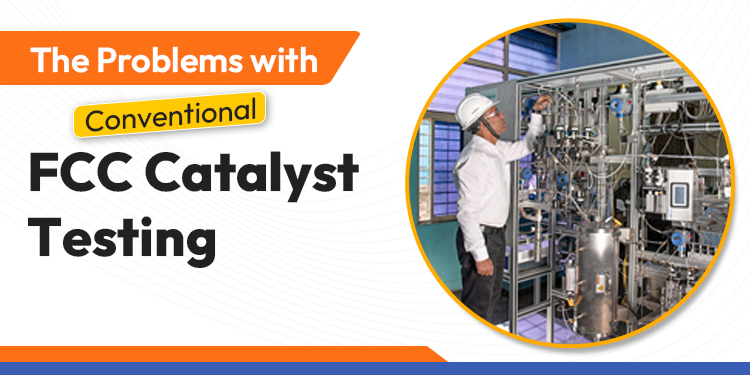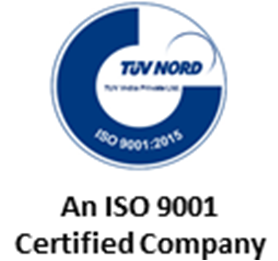Premier Pilot Plant People

The Problems with Conventional FCC Catalyst Testing
The Problems with Conventional FCC Catalyst Testing
In the high-stakes world of fluid catalytic cracking (FCC), catalyst performance isn’t just important—it’s pivotal. Accurate catalyst testing is the foundation of process optimization, feedstock flexibility, and profitability. But for years, the industry has struggled with outdated testing setups that limit reliability, repeatability, and real-time adaptability. At Xytel India, we’ve seen these challenges firsthand. Every inconsistent cycle. Every manual error. Every misaligned data set. And we’ve set out to fix them, from the ground up.Where Conventional FCC Catalyst Testing Falls Short
Despite its critical role in refining operations, traditional FCC catalyst testing continues to rely on outdated methodologies. Here are the key issues:1. Manual Errors That Skew Results
Most conventional test rigs still depend heavily on manual operation, from feeding catalysts to adjusting temperatures and triggering cycles. These manual interventions introduce human error, creating fluctuations that make it difficult to compare test runs or trust outcomes. Impact: Operators frequently encounter batch-to-batch variability, resulting in inaccurate catalyst performance assessments and misguided decisions during scale-up or procurement.2. Disjointed Systems That Break Data Flow
Traditional testing setups typically consist of standalone subsystems—often built by different vendors or modified over time. These components rarely communicate seamlessly, making data logging fragmented and post-analysis cumbersome. Impact: Incomplete or non-synchronized data prevents users from capturing subtle trends or correlating catalyst activity with operating conditions.3. Inconsistent Regeneration Sequences
Catalyst regeneration is a critical phase to restore activity, especially in cyclic testing. But legacy systems struggle with maintaining consistency in temperature, airflow, and timing—parameters that should be tightly controlled. Impact: Inconsistent regeneration skews activity results and masks true catalyst longevity and performance, defeating the purpose of long-term testing.4. Partial Automation That Can’t Keep Up in Real-Time
Some test units may boast partial automation—timer-based controls or isolated logic controllers—but they fail to adapt dynamically to live operating conditions. There’s no intelligent interlock or real-time decision-making. Impact: These systems can’t respond to deviations instantly, increasing safety risks, introducing delays, and reducing test fidelity.We’ve Seen It All
At Xytel India, we’ve worked with major refining R&D labs and pilot facilities across the country. The story is often the same:- Data that doesn’t align across cycles
- Delays caused by manual intervention
- Performance evaluations that don’t translate into plant success
A New Chapter in Catalyst Testing
The industry has been ready for a change. And we’ve built the system it’s been waiting for. Introducing the XY-MAT — Xytel’s Fully Automated FCC Catalyst Testing Unit, engineered specifically to resolve every pain point conventional systems could not.Built for Consistency, Speed, and Control
From the ground up, XY-MAT is designed as a closed-loop, modular, and intelligent system that brings lab testing in line with the demands of modern manufacturing:Fully Automated Test Cycles
No manual starts. No operator guessing. Every step—from catalyst feed to reaction to regeneration—is programmatically controlled with high-precision instrumentation.Real-Time Adaptive Controls
The XY-MAT monitors operating parameters like temperature, pressure, and flow rates in real time. Smart interlocks and PLC-based automation allow dynamic responses to system conditions.Seamless Data Integration
Integrated data acquisition and analytics modules ensure that no measurement is missed and that all process data flows into a single, unified system.Consistent Regeneration Protocols
The system applies precise temperature and airflow profiles during regeneration, ensuring every catalyst cycle returns to baseline conditions.Modular and Scalable Architecture
Whether you’re running lab-scale studies or semi-commercial trials, the XY-MAT can scale with your needs thanks to its skid-mounted, flexible design.A Step Forward for the Refining Industry
With rising feedstock variability and tighter environmental norms, refining operations can no longer afford to rely on test rigs that belong to a bygone era. Xytel India’s XY-MAT solution is not just a better FCC catalyst tester—it’s a complete rethink of how catalyst performance should be evaluated in the modern age. You don’t need more data—you need better data, faster. And you need to get it without delays, misalignments, or risk. With XY-MAT, you’re finally in control.Ready to Upgrade Your FCC Testing?
Visit Xytel India to learn how XY-MAT is already helping top R&D and manufacturing labs raise the bar on catalyst testing—and how we can do the same for you.Get in Touch
You will be amazed as how partnering with us becomes a game changer in your quest for R&D glory.

 Call Us
Call Us